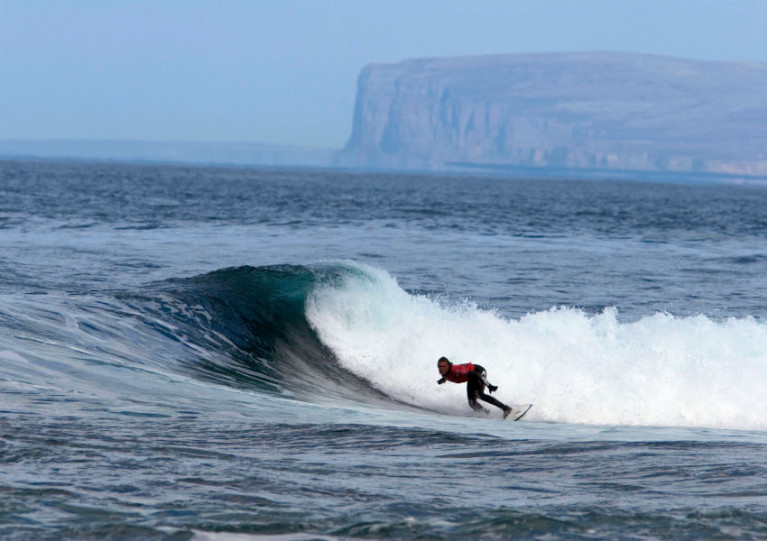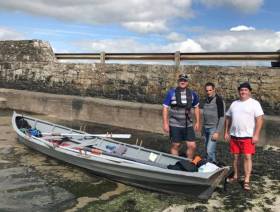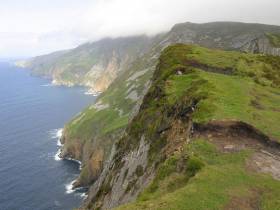Displaying items by tag: Adventure Tourism
Upcoming Webinar Series to Discuss Scotland’s Strategy for Sailing & Adventure Tourism Post-Covid
Scotland’s vast potential for sailing and adventure tourism post-Covid-19 is the focus of a new webinar series next week.
Marine Industry News reports on the online inaugural Adventure Tourism Week, an initiative of VisitScotland, Wild Scotland and Sail Scotland.
The five-day programme of live online seminars will explore what affects the coronavirus pandemic has had on the adventure tourism sector in Scotland, and how the region can capitalise on emerging trends around the world.
“The commercial sailing charter and holiday sectors have been severely impacted by the pandemic,” says Sail Scotland chief executive Alan Rankin.
“This event will provide a positive stepping-stone for future planning, provide a much-needed confidence boost to businesses and help focus attention on the sector that can be at the very heart of tourism recovery in Scotland.”
Marine Industry News has more on the story HERE.
Shannon Estuary Adventure Tourism is Just a Stroke Away
Leisure rowers and adventure tourists could be enjoying the delights and challenges of the Shannon Estuary if a new wave of eco-adventure tourism is realised, writes Andrew Carey in Limerick.
That is according to Emmett O'Brien, the Pallaskenry native and local councillor who recently rowed a hand built Ilen Project gandelow over 20 miles from Ringmoylan Pier to Labasheda in West Clare.
The aim of the avid oarsman and Shannon Estuary enthusiast was to highlight the tourism potential that the Shannon Estuary has for communities on both sides of the water.
Forward thinking, planning and some cohesive work, according to Mr O'Brien, could "open up the waters to the growing industry of adventure tourism and guided rowing trips".
Cllr O'Brien was joined on the row by Mike Grimes from Coonagh and Tommy Roberts from Newtown, Clarina in what they described as a "fantastic experience to row along the Shannon estuary passing Beagh, Ballysteen, the Beeves lighthouse, the Fergus, Foynes Island and Killydysert".
Afterwards, Mr O'Brien who is a practicing barrister and local farmer said that "Limerick has a great opportunity to promote overseas adventure tourism on the Shannon estuary.
"In 2011 alone adventure tourism was worth €1.2m and the spend of activity tourism visitors is on average 45 per cent higher than ordinary overseas visitors.
"There is a huge opportunity to capitalise on chartered tours from the Limerick City and County side to any of hidden gems on the Shannon estuary.
"Our row showed us that, conceivably, subject to the right weather conditions and timing the tides accurately, adventure tourists could row from Limerick city to Loop Head in West Clare in just three days.
"Alternatively if they wanted a more prolonged adventure they could, over a week period, explore the attractions along the estuary such as Bunratty, Beeves lighthouse, the islands and monastic settlements on the Fergus and a whole host of villages on the estuary."
Recent studies from tourism bodies has shown that upwards of 100,000 international visitors travel to the UK and Ireland for rowing based holidays and tours during 2015 and 2016.
Cllr O'Brien believes that the Shannon Estuary can attract some of these visitors.
"In Limerick and Clare we have an untapped natural resource in the Shannon estuary from a tourism perspective and its high time the tourism officers of both councils looked at what it can deliver."
Surfing Pioneer Gives Keynote At Adventure Tourism Conference
#Adventure - Pioneering Irish surfer Easkey Britton was keynote speaker at the fifth annual International Adventure Conference in Tralee last week, as The Kerryman reports.
The event attracted experts from as far afield as New Zealand for three days of talks on the future of adventure tourism – plus a number of outdoor excursions.
Kerry aims to compete with the likes of Donegal in the increasingly popular adventure tourism stakes, which comprise such white-knuckle activities as surfing, sea kayaking and climbing along Ireland’s rugged coasts.
Donegal recently hosted the 50th anniversary of surfing’s arrival in Ireland, and RTÉ’s Barry O’Neill was on hand to discover how the sport has contributed to the lives of often distant coastal communities.
Donegal Is 'Hidden Paradise' For Adventurers
#Donegal - The coastline of Co Donegal is as much an attraction for adventure tourists as it is for those drawn to its rugged beauty, according to Outside magazine.
And some of those seeking thrills have even made the north-east county their home – such as Scottish-born climbing guide Iain Miller, who leads the magazine's Stephanie Pearson to breathtaking heights at once startlingly remote and surprisingly accessible.
But it's not just about climbers seeking the challenge of Donegal's sea stacks, nor the big swells that bring top surfers to the county in ever increasing numbers.
Sea kayakers, too, have coastal nooks and crannies to explore when the weather permits, while hikers have miles of the Irish portion of the International Appalachian Trail – which crosses one of Europe's highest sea cliffs in Slieve League.
Outside has much more on the story HERE.

































































